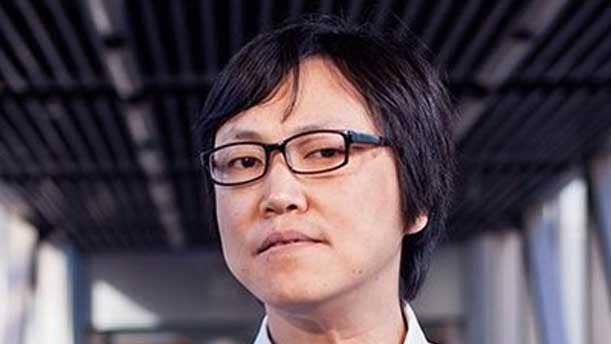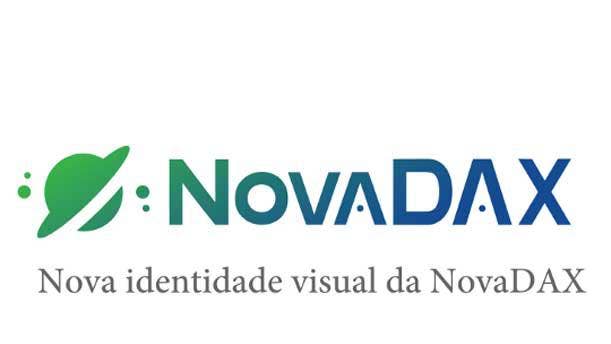The 10 Hottest Cryptocurrency Startups Of 2018
The top 10 cryptocurrency startups this year include companies solving challenges around accessing short and leveraged tokens, hosting cryptocurrency reference material, and offering a trading platform for digital assets.

Life On The Ledger
The cryptocurrency market is expected to grow 6.18 percent annually from $1.03 billion in 2019 to $1.4 billion in 2024 thanks to the transparency of distributed ledger technology, high remittances in developing countries, the high cost of cross-border remittance, fluctuations in monetary regulations, and growth in venture capital investments, according to research firm MarketsandMarkets.
CRN has identified 10 cryptocurrency startups launched in either 2017 or 2018 that stood out from the crowd thanks to new funding or key product enhancements or updates. Four of the top startups are based in the United States, three are based in other parts of the Americas, and three operate out of Europe or Asia.
These companies are solving cryptocurrency-related challenges such as providing access to short and leveraged tokens, creating unique tokens for each user, hosting blockchain and cryptocurrency reference material, and offering a trading platform for digital assets.
Here's what the 10 hottest cryptocurrency startups have done this year to make themselves indispensable to customers.

BitMart
Founder and CEO: Sheldon Xia
BitMart was founded in September 2017, and received $10 million in Series A funding in January. The Cayman Islands-based company aims to provide diversified system functions such as spot trading, futures contract trading, over-the-counter trading, whole-network trading and decentralized trading to satisfy different needs for a wide array of investors.
The company launched its globally integrated digital asset trading platform on March 15, and expects its unique whole-network trading model will efficiently match the market depth of other major exchanges around the globe while providing higher liquidity.
BitMart in July launched a community listing market that allows projects to obtain investment from supporters in the form of BitMart coins. The market makes it possible for projects newly out of their ICO stage to obtain listing on a major exchange early in their development path, spurring growth and innovation around blockchain technology.

Cobo
CEO and Co-Founder: Discus Fish
Cobo announced in October that it had raised $13 million in a Series A round led by DHVC and Wu Capital to support the global expansion of the company's product lines.
The New York-based company's flagship products include Cobo Wallet, a multi-asset cryptocurrency software wallet that lets users securely grow their cryptocurrency holdings through Proof of Stake (PoS) mining rewards. The staking pools offer higher chance to validate transactions on blockchains utilizing the PoS consensus mechanism, according to the company.
Cobo Vault, meanwhile, reliably safeguards cryptocurrency from digital security vulnerabilities, while utilizing one-of-a-kind functions to prevent physical tampering, the company claims. The product also includes a secondary level of hardware security that instantly triggers a self-destruct mechanism wiping all stored private keys and data in the event that a threat actor attempts to physically force open its body to conduct a circuit hack.

dYdX
Founder: Antonio Juliano
dYdX was founded in September 2017 to enable open, efficient and secure financial products on cryptoassets. The San Francisco-based company recently launched its Margin Trading Protocol, and expo, an application that gives users access to short and leveraged tokens.
The company in October completed a $10 million Series A funding round led by a16z crypto and Polychain Capital to help make derivatives and margin trading a core component of the emerging decentralized financial system.
dYdX plans to use the capital to continue adding new assets and features to expo and the Margin Trading Protocol, as well as build new protocols for additional financial products including options. The company also plans to work with partners to grow decentralized margin trading and derivatives, as well as design a regulation-compliant approach towards building decentralized financial products.

Finhaven
CEO: DH Kim
Finhaven was founded in 2017, and received $1 million in seed funding in March from Medici Investments to help launch an equity and debt issuance platform utilizing the Ethereum blockchain for the creation of tokenized securities.
Building on top of the Ethereum blockchain for issuance of security tokens, secure portfolio wallets, and an audit layer providing a log of transactions, Finhaven enables the creation of a unique token for each issuer. The Bitcoin blockchain powers Finhaven's remittance layer, where investors accumulate Bitcoin as the return from their investments.
The Vancouver, British Columbia-based company in September completed a $5.13 million Series A round led by Dunamu & Partners to further facilitate the product and business development of Finhaven as it drives innovation in capital markets. Two months later, the company agreed to partner with merchant processing service the White Wallet to explore business development opportunities.

Harbor
CEO: Joshua Stein
Harbor in April raised $28 million in new funding to reengineer private securities with blockchain technology. The corporate round led by Founders Fund is expected to help usher in a new wave of tokenized securities backed by real-world assets such as real estate, company equity, investment funds, and fine art, according to Harbor.
The regulated token is a core component of Harbor's compliance protocol, checking every trade and only permitting transactions to occur if they meet applicable rules for that specific offering. The rules can span the gamut from limiting the number of total investors to only allowing specific types of investors or implementing a holding period.
Harbor was founded in September 2017, and has raised more than $40 million in three rounds of outside funding. Over the summer, the San Francisco-based company began delivering the first platform for issuers of securities and licensed broker-dealers to bring fully compliant tokenized securities to market.

Mars Finance
Founder: Fred Wang
Mars Finance launched in February to provide free and publicly accessible hosting services for blockchain and cryptocurrency reference material, market segments, and online blockchain communities.
Four months later, the Beijing-based company announced it had raised $51.3 million in a Series A round led by Ceyuan Ventures and Huobi Global Ecosystem Fund to help Mars Finance become a globally-accessible blockchain information service platform.
Mars Finance in August hosted its first U.S.-based conference to expose many of China's top blockchain and cryptocurrency projects, developers, and thought leaders to the US market and US investors, and promote collaboration between projects and leaders in both markets. And the company in October released Mars Finance U.S. Version to become a truly international blockchain service platform.

NovaDAX
Head of NovaGlobal SEA: James Chan
NovaDAX provides customers with a safe, convenient and fast way to buy, sell and store cryptocurrency assets such as Bitcoin and Ethereum. By using their wallet, customers can send, receive and store cryptocurrency assets at their most secure, with the trading platform making it possible for customers buy and sell cryptocurrency assets instantly and globally.
The company launched in Brazil at the end of September, and is preparing future launches in the European Union, United States, Japan, and Southeast Asia. NovaDAX was founded in March, and raised $20M in Series A funding from global-leading technology company Abakus.
Nova aims to build up a financial ecosystem to provide billions of global customers with crypto asset management, crypto asset trading and crypto credit line. The company also plans to develop its own public chain to protect user privacy and make opening virtual bank accounts globally easier and applying for crypto credit cards based on a user's data record possible.

Radar Relay
CEO: Alan Curtis
Radar Relay was founded in 2017, and emerged from its beta phase in June with a decentralized trading platform that significantly improves the global accessibility, security, and usability offered to customers. The update also update comes with improvements to user onboarding, with an intuitive tool to guide users through the process of connecting their wallet to the platform and enabling tokens for trading.
The Denver-based company completed a $10 million Series A round in August led by Blockchain Capital to support the development of new product research, strategic hiring, and global expansion of the company's platform.
In October, the company became the first relayer to offer an advanced trading option that provides users with the ability to hedge portfolio risks through a tokenized short position abstracted in an Ethereum token. Introducing short tokens provides users the ability to diversify their portfolio while retaining custody of their assets, Radar Relay said, bringing more accessibility to cryptocurrencies.

Saga Foundation
Founder: Ido Sadeh Man
Saga Foundation was founded in 2017, and received $30 million of seed funding in a March round led by lool ventures, Mangrove Capital Partners, and Lightspeed Venture Partners.
The Zug, Switzerland-based company is looking to create the first non-anonymous blockchain-based digital currency with a tamed volatility mechanism. These characteristics are intended to set the ground for the currency to become a store of value and a medium of exchange, according to Saga.
Saga is designed to address concerns expressed by policy makers, regulators and market participants regarding cryptocurrencies around their anonymity, lack of underlying value, and high volatility. By requiring Saga holders to satisfy full know your customer qualification and anti-money laundering requirements, the company is able to resolve concerns around participant accountability.

Terra
Co-Founder: Daniel Shin
Terra was founded in January, and in August closed a $32 million seed funding round led by the capital investment arms of four of the six largest global cryptocurrency exchanges to kickstart the company's vision of creating the next generation of digital money.
The Singapore-based company aims to overcome key barriers to the mass adoption of digital currencies by creating a price-stable cryptocurrency that can be readily used on Terra's blockchain payment tool. Terra said its go-to-market strategy leverages the large and ever-growing transaction volumes of eCommerce platforms.
Terra's protocol ensures price-stability by algorithmically expanding and contracting supply, while the company's Stability Reserve makes a decentralized guarantee of solvency, protecting it from the speculative and regulatory risks that other currencies are exposed to. The company hopes to make paying for groceries with cryptocurrency a reality with low transaction fees and a seamless experience.